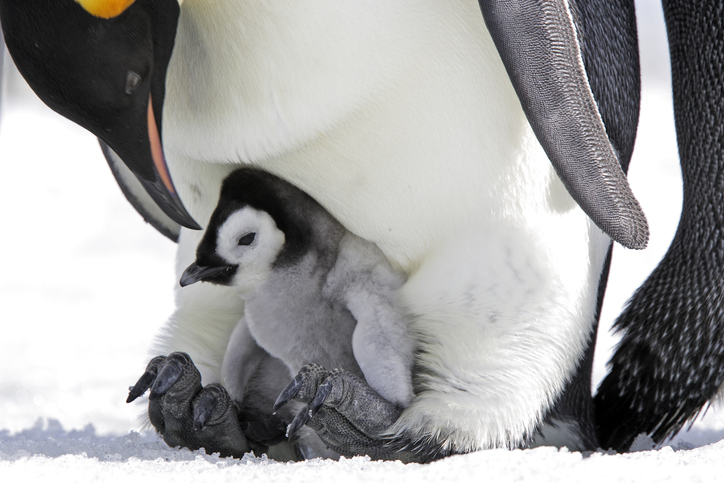Some of the world’s most “charismatic” species are the most at risk due to climate change, a new study says.

The study, published in Frontiers in Marine Science on Thursday, shows since glaciers and breaking ice shelves are so important to certain species, they will be the first ones to feel the negative effects of climate change.
The study looked at previous literature on effects on single species to find if some will fare better or worse in a warming climate.
Some of the most “charismatic” species are at risk, study author Simon Morely said. Since the Emperor penguin breeds on the ice shelves, and the Adèlie and chinstrap penguins feed on krill that live underneath the ice, they were deemed some of the most vulnerable.
“If the krill disappears, then they could be in real trouble,” Morely said.
WATCH: UBC studies Falklands penguins

Animals that feed in open waters — such as certain types of whales, or the king penguin — could potentially benefit, he explained because their food supply is primarily a type of fish.
Even though there may be positive benefits to some species, it’s never certain how the ecosystem as a whole will be affected, said Jackie Dawson, Canada’s research chair in environment, society and policy.
READ MORE: A brain-eating species called the great tit is threatening other birds — thanks to climate change
Morely cautioned that the study only focuses on the animals we already have information on.
“There are lots of quite rare animals in the shallows that we just don’t know anything about,” he said, and that could have other effects on the ecosystems.

Get breaking National news
“Different species are coming in which are completely changing the ecosystem which could be positive or could be negative,” Dawson said.
“It’s all about how quickly these things change — because an ecosystem can handle slow change,” she said, adding, “It’s Darwinism.”
But a rapid and abrupt change can be detrimental to an ecosystem, and she warned that we don’t always know what the tipping points are.
WATCH: Antarctic ice is melting faster than expected

Morely agreed, saying part of the research was based on how species have reacted to previous changes in climate, including during the last ice age, but a more rapid melting — like what we’re seeing now — could cause major changes.
“Most of the animals that are currently around on the planet have not experienced this rate of change in the climate,” he said.
Dawson said the effects of one species can filter through to others, including to humans — which is why it’s important to limit the effect of climate change.
“We all know it’s all connected. And those knock-on effects can be quite traumatic for the species themselves but also for the humans,” she said.
Antarctica is losing sea ice more rapidly than ever before, according to the Bureau of Meteorology. The 2017 spring and summer melt was the second-worst spring recorded. (Data from 2018’s summer hasn’t yet been released.)
READ MORE: Antarctica’s sea ice hits second-lowest point on record









Comments
Want to discuss? Please read our Commenting Policy first.